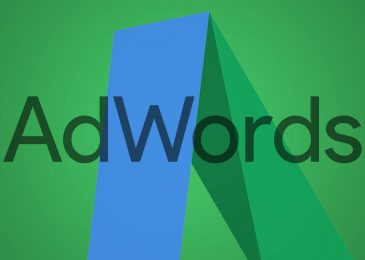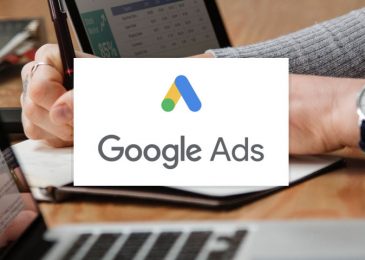I’ll explain why budgets and bids are not the same, why you can’t depend on a bigger budget to carry your account, and how your bids can help improve your account performance – regardless of how big or small your budget may be.
Budgets determine overall performance
A lot of my clients understand that budget is a key factor in performance, and I cannot deny that! If you do not have the proper funds to support your online advertising, you will effectively be restricting your account from performing optimally. If you think about it, your budget affects how long your ads continue to serve throughout the day, how much you are able to spend on a click, and how many of your products and services that you can realistically show ads for.

But does budget really affect account performance in the ad auction? I’d say yes and no.
Budget does NOT impact how much you are telling Google you are willing to spend on a click. If we break it down, the Google auction factors in your ad rank, and this is composed of both the individual keyword bid price and Quality Score. Quality Score has many factors, such as page speed, mobile compatibility, relevancy of your ad to your keywords, landing page experience, relevancy of landing page content to the ad, and more. There are a lot of variables in Quality Score that you may or may not be able to control depending on your authority over your business’s website.
Whether you’re a small business with an even smaller marketing budget or you work at an agency for a client with strict limits, in most cases, you don’t have much control over your total budget, either. Instead of focusing on how you could potentially improve your account performance if you had control over these factors, I suggest shifting focus to what is in our control: bids.
Bids make your account competitive
While we can’t always adjust our budget, what we CAN control is our bids. Even better? We can strategize for more competitive performance. “But, Lyle, I told Google that I am willing to spend X amount more a day on the campaign, doesn’t that mean that I will perform better automatically?”
Not at all.
To tell Google how valuable a keyword is to your business, you set your maximum CPC. Your budget does NOT change how much you tell Google you are willing to spend on that click, unless you are using an automated bid strategy – but more on that later.
In the case of Manual CPC, you are setting the individual bids for your keywords. If I have a $1000 daily budget, and all of my keywords are set to $3 bids, my competitiveness will still be limited to that $3 maximum CPC regardless of how many times I can afford getting those clicks.
This is why setting your bids to an optimal value is key in performance. Think about it: If the top-of-page bid is $10 and I am bidding $3, then chances are that my average position is anywhere from 5-7. In fact, I may not be showing my ads at all! This will decrease my expected click-through rate, which lowers my Quality Score and increases the price I have to pay to show my ad. I will be spending more for a click that’s less likely to happen, and my impression share will tumble. In other words, bidding poorly will HURT you if you are not using a strategy that considers your industry’s standard bid prices.
“Well, Lyle, it says that industry wide the average CPC advertisers are willing to spend for a click is $2, so why should I spend more?”
Every industry is different. Someone in the legal, HVAC, or software industry may have to spend significantly more than an advertiser in a very niche market. You have to consider your specific business when thinking about online advertising.

Even if I’m willing to spend $1000 per day, if I do not set my bids appropriately, I will barely show my ad and never have the chance to spend up to that budget. If I want a fighting chance to compete, I need to tell Google that a click is valuable to me.
“So, Lyle, if I do not know what my industry average is, what should I do?”
Consider historical trends. How many clicks does it take for you to get a conversion? How many conversions does it take for you to get a sale? What is your average order value of one sale?
If you’re a WordStream customer, you can pull in the Top of Page and First Position bid columns to see what the current competition is for a particular keyword. This is great because it allows you to determine whether or not a keyword is within your price range and if you are currently bidding aggressively enough!
If my budget is $1000, and it takes me 20 clicks to get 1 conversion, and 5 conversions lead to sales that range from $2000-5000, I can use math to calculate how much I should spend. In this case, I want at least 100 clicks per month to generate ROI, so I should have a minimum CPC set to $10.
If you do not have this data, which may very well be the case, look into your specific industry average!
How to leverage bids over budget
Let’s pretend I am a divorce attorney in Boston. If someone looks up “divorce attorney in boston,” I want to appear on that SERP. This is an incredible keyword that I should DEFINITELY bid aggressively on.
When I searched this phrase on Google, this results page popped up:

The advertisers in the first two or three positions are the businesses that are most likely to generate a click, considering those first spots are where a user is visually drawn to. Not just that, but the first positions on the SERP are typically the companies that users trust the most.
With that said, there are still ads being shown below this section at the top of the page, which I would never have known about unless I scrolled to the way bottom! In this case, these advertisers have the lowest Ad Ranks for the auction and show their ads where the CTR is guaranteed to be lower.

You can see that these advertisers at the very bottom of the first page are showing their ads in a place where users will likely never get to see them. Because their bids are set too low, these advertisers are not getting a fighting chance to earn that warm click – regardless of the size of their budgets.
This is why some advertisers with a smaller budget can perform better than advertisers with more money to spend. Without taking position into consideration, the chance of getting viewed, clicked, and contacted is significantly restricted when other companies are well aware of the importance of where your ad is shown.
Read more How to increase PPC conversion rate
_______________________________________________________________________________
For more details about our seo service packages, pls contact us
BIGBIGSEO Team
Email: bigbigseo@gmail.com
Skype: bigbigseo
https://www.facebook.com/bigbigseo
Thank you!




